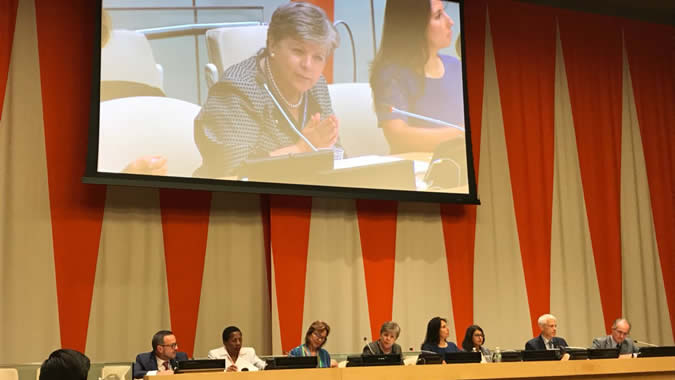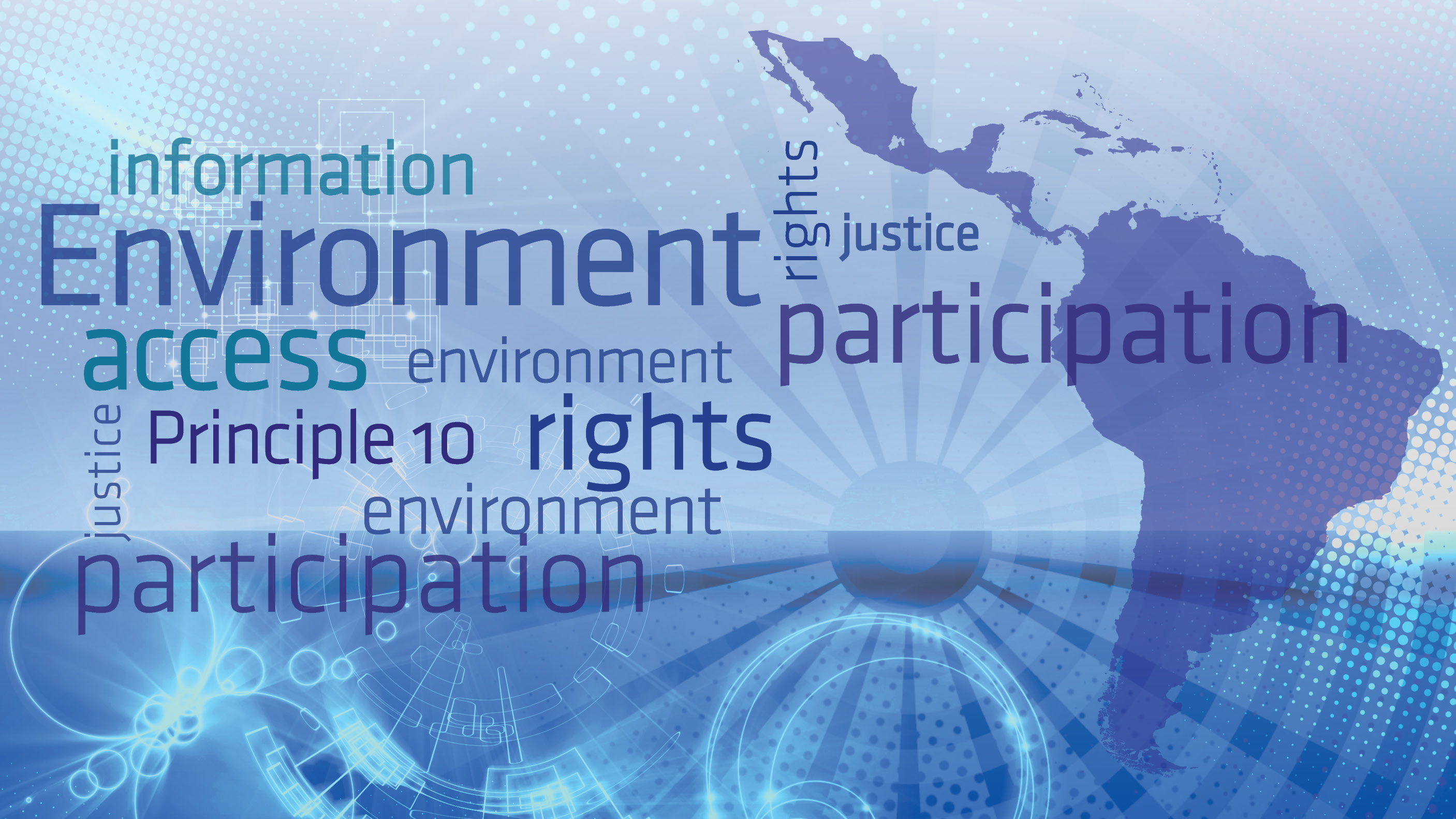Regional Agreement on Access to Information, Participation and Justice in Environmental Matters Strengthens Democracy and Promotes Growth with Equality and Sustainability
Work area(s)
At a side event to the High-level Political Forum being held in New York, ECLAC’s Executive Secretary, Alicia Bárcena, called on countries to sign the legal instrument.

The Regional Agreement on access to information, public participation and justice in environmental matters (Principle 10 of the Rio Declaration of 1992) – adopted in Escazu, Costa Rica on March 4, 2018 – strengthens environmental democracy and represents a crucial step toward the construction of societies with economic growth based on sustainable development and equality, said Alicia Bárcena, the Executive Secretary of the Economic Commission for Latin America and the Caribbean (ECLAC), and Olga Algayerova, the Executive Secretary of the Economic Commission for Europe (ECE), during an event held today in the framework of the High-level Political Forum (HLPF) taking place this week and next in New York.
Bárcena was the main speaker at the side event to the HLPF entitled “Environmental Democracy for Sustainable Societies”, organized by ECLAC in collaboration with the ECE and the governments of Chile, Costa Rica, France, Italy, UN Environment and The Access Initiative. There, authorities and international experts exchanged experiences regarding how the global community is taking proactive and collaborative action to safeguard the rights enshrined in Principle 10.
Among these international efforts they highlighted the recently adopted “Escazu Agreement” of the Latin American and Caribbean countries, and the Aarhus Convention, which is currently celebrating its 20th anniversary.
“The ‘Escazu Agreement’ is reflective of the Latin American and Caribbean priorities and main concerns: it sets regional standards, affirming the value of the regional dimension of multilateralism for sustainable development, fosters capacity-building and regional cooperation, lays the foundations of a supporting institutional architecture and offers tools for improved policy- and decision-making,” Alicia Bárcena indicated in her remarks.
Other participants included authorities and ambassadors to the United Nations from the countries that organized the event, who underscored the synergies and inter-linkages between the promotion of environmental democracy and the 2030 Agenda for Sustainable Development.
Meanwhile, the panel discussion was composed of Jorge Iglesias, Deputy Permanent Representative of Chile to the United Nations; Verónica García, Chargée d’Affaires of the Permanent Mission of Costa Rica to the United Nations; Martin Bortzmeyer, Head of the Delegation for Sustainable Development of the Ministry for the Ecological and Inclusive Transition of France; Sergio Mercuri, Minister Plenipotentiary and Sustainability Coordinator of the Ministry of Foreign Affairs of Italy; Penelope Beckles, Permanent Representative of Trinidad and Tobago to the United Nations; and Natalia Gómez Peña, representative of the public in the negotiation process of the Escazu Agreement.
Bárcena stressed that the Regional Agreement is the remarkable result of an intergovernmental process that included significant public participation, and was achieved after nine meetings of the negotiating committee, convened in 2014 and led by Chile and Costa Rica. “Its main beneficiaries are the people of our region and the most vulnerable groups and communities,” she stated.
“This Agreement contributes to charting the pathway towards a new, more sustainable development model, leaving no one behind. It also addresses the protection of human rights defenders in environmental matters in a region where, sadly, they are all too often subject to attacks and intimidation,” she added.
ECLAC’s Executive Secretary explained that with this instrument, the region of Latin America and the Caribbean is also setting a shining example of how to balance the three dimensions of sustainable development (economic, social and environmental). “By engaging the public in all decisions that affect them and establishing a new relationship between the State, the market and society, our countries are refuting the false dichotomy between environmental protection and economic development. Growth cannot take place at the expense of the environment and the environment cannot be managed if our economies and peoples are ignored,” Bárcena stressed.
She also emphasized that the “Escazu Agreement” – which ECLAC holds the technical secretariat of – is the first regional treaty on environmental matters, constituting an invaluable tool for achieving the 2030 Agenda. Finally, Alicia Bárcena called on the region’s 33 countries to sign and ratify the accord starting on September 27, when it will be open to government signatures at the seat of the United Nations General Assembly, so that it can enter into force as soon as possible.
Related content

Side Event: Environmental democracy for sustainable societies
Organized by UN ECLAC in collaboration with Chile, Costa Rica, France, Italy, UN-ECE, UN ENVIRONMENT, and The Access Initiative in the margins of the 2018 High Level Political Forum of the United…
Type
Country(ies)
- Latin America and the Caribbean
Contact
Public Information Unit
- prensa@cepal.org
- (56 2) 2210 2040